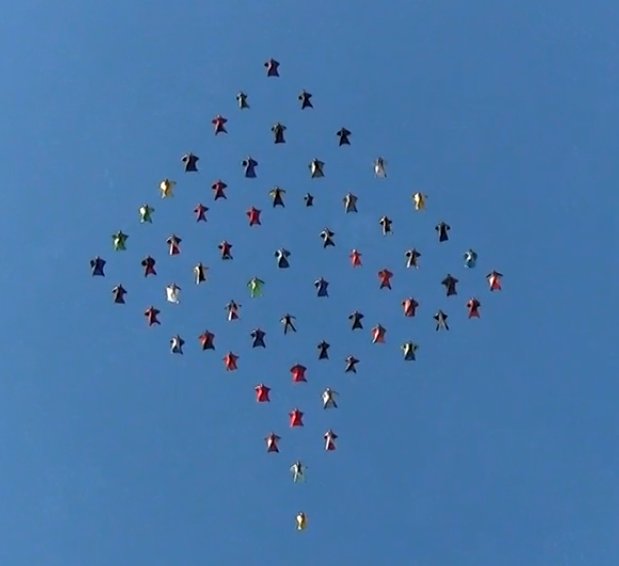Snow, freeze, thaw, freeze, repeat and rinse.
billvon 3,157
>Therefore I'd like to see the percentage numbers. Are 90% of glaciers losing
>their mass, or 1%? I bet you would also agree this is significant.
In Switzerland and Italy, 100% of the glaciers were retreating in 2005. In Alaska in 2008, 99% were retreating. In Antarctica in 2005, 87% of the glaciers were retreating.
In 2005, 67% of Himalayan glaciers were retreating. Tajikistan - 100%. Cascades - 100%. Iceland - 100%. Greenland - all three primary glaciers are retreating.
=====================
Fri, Jan 30, 2009
Mongabay
Glaciers decline in ice mass for 18th straight year
Glaciers worldwide lost ice mass for the 18th consecutive year due to warming temperatures and reduce snowfall, reports the University of Zurich’s World Glacier Monitoring Service. Alpine glaciers lost on average 1.3 meters of thickness in 2006 and 0.7 meters in 2007, extending an 11.3-meter (36-foot) retreat since 1980. The pace melting has more than doubled since the 1990s
=====================
Fri, Mar 21, 2008
The Guardian
Glaciers melting at fastest rate in past 5,000 years
Experts have been monitoring 30 glaciers around the world for nearly three decades and the most recent figures, for 2006, show the biggest ever 'net loss' of ice. Achim Steiner, head of the UN Environment Programme (UNEP), told The Observer that melting glaciers were now the 'loudest and clearest' warning signal of global warming.
====================
NASA Media Alerts Stories Archive
April 21, 2005
GLACIERS FROM ANTARCTIC PENINSULA IN WIDESPREAD RETREAT, SCIENCE STUDY SAYS
The first comprehensive study of glaciers on Antarctic Peninsula has uncovered
widespread glacier retreat and suggests that recent climate change on the peninsula is
responsible.
Eighty-seven percent of the 244 marine glaciers have retreated over the last 50 years, a
new study says.
======================
headoverheels 334
QuoteHowever, land ice melting will increase sea level, since that's water that used to be on land and is now returning to the ocean.
Somewhat moderated by warmer air holding more water vapor.
billvon 3,157
But also exacerbated by warmer water expanding.
kallend 2,200
QuoteQuoteHowever, land ice melting will increase sea level, since that's water that used to be on land and is now returning to the ocean.
Somewhat moderated by warmer air holding more water vapor.
Easy question: If ALL the water vapor in the atmosphere were to precipitate out and end up in the oceans, how much would sea level rise?
Slightly harder question: If just the ADDITIONAL water vapor in the atmosphere due to atmospheric warming were to precipitate out and end up in the oceans, how much would sea level rise?
The only sure way to survive a canopy collision is not to have one.
The area of oceans and seas is so large that there would barely be a difference.
I hope this helps you astound your students.
Anytime I can help let me know.![]()
Quote
Another prediction is; The melting of one of the world's largest ice sheets would alter the Earth's field of gravity and even its rotation in space so much that it would cause sea levels along some coasts to rise faster than the global average .
This would affect north america more than the rest of the world as explained in this publication
there are plenty of theories, most of which conclude a negative impact the earth as we know it.
The article says nothing about changed gravitation fields or rotation. Frankly, this sounds like the same science you cite for 9/11 theories. The earth has a radius of 4000miles, and you're talking about the ice mass on the top 5 or 6 miles shifting down to sea level. It's not a huge amount, and this is a world that has had those sort of shifts take place before.
kallend 2,200
QuoteI hope this helps you astound your students.
Anytime I can help let me know.
My students can do it all by themselves, and calculate the correct numbers too.
But thanks for pointing out that atmospheric water vapor is not going to help ameliorate a rise in sea level.
The only sure way to survive a canopy collision is not to have one.
QuoteJust because one end of the glacier is melting, doesn't mean the rest of it is.
Excellent point. A point for which the article specifically spoke. From the article in the original post:
QuoteSince 1959, the U.S. Geological Survey, which published the study on its Web site, has been tracking the movements of the South Cascade glacier in Washington and the Wolverine and Gulkana glaciers in Alaska. The three glaciers are considered "benchmarks" for the conditions of thousands of other glaciers because they're in different climate zones and at various elevations.
"These changes are taking place in Washington State and Alaska in three different climate regimes," said Edward Josberger, the lead researcher on the study with the USGS Washington Water Science Center in Tacoma, Washington.
So, while what you say makes an incredible amount of sense to me, apparently there is something else going on for which altitude is limited in its importance.
This leaves us with a couple of choices: (1) your thought has been disproven; (2) the lead researcher, who found it happening at different altitudes, cannot be trusted; or (3) the data is wrong.
I mean, he made sure that he specifically cited that this is occurring a different altitudes and in different climate regimes. Surprised me, too. So I'm looking here at what the article has to say.
I think your point has a great deal of validity, though. It makes sense to me. According to the article, "The melting has far exceeded the amount of snow that falls on them in the winter, so they're retreating far up valley." His aversion to the "glacially fed lakes" outside of Anchorage also seem to indicate that there won't be nearly as much water filling them because of the lack of glacier melt (these lakes must be recent - the glaciers weren't melting before (yes, I'm being a wise ass).)
Thus, as I stated in an earlier post, with continued melting and retreat, without snowfall to replenish the melt, the glacier would be, effectively, yearly snowpack within prior to the next 100 years (remember - glaciers don't just sit there. They move downhill).
Yes, Jack, I thought of it. And I am in agreement with what you are saying. On the other hand, this is apparently good science that runs somewhat counter to what you and I understand.
But - probably the best studied glacier in the world is the Soutch Cascade glacier. This glacier has an elevation range of 1630^2130 m and an area of 2 km with a length of 3 km. It gets about 5 meters of snowfall annually. One could expect there to be about 1 degree C difference in temperature between the base and the peak. Recall that these glaciers are typically warmed and melted by surrounding air in the summertime. The melting is attributed to tropospehric warming (up to, what, 10 miles?) But, theory is also that greenhouse gases in the atmosphere re-radiate, so we could expect the top of the glacier to melt, as well.
See why certain things don't make as much sense to me? Yeah, it's colder 1,500 feet up. I get that.
My wife is hotter than your wife.
Ion01 2
Quote>Somewhat moderated by warmer air holding more water vapor.
But also exacerbated by warmer water expanding.
Ice floats....think about that for a minute
billvon 3,157
OK. I am beginning to think about it. I see a cool way to propel icebergs in warmer water, an experiment to demonstrate the displacement thing, and an odd thought about why ice in beer would be a bad idea.
OK, minute's up.


.thumb.jpg.4bb795e2eaf21b8b300039a5e1ec7f92.jpg)



You mean to tell me that things are currently changing like they always have though out history? Holy *%#! Just like Herculaneum was a port town but is now far from the shore like so many other cities, or how numerous different deserts around the world weren't always deserts such as the Sahara? *%#! We are all going to die from heat despite the fact that man flourished the most during the roman and midieval warming periods (when there wasn't a huge carbon industry) and versus the little ice age and such! We will all starve despite the fact that global warming means more farm land! The end is near! This is your final warning! Don't listen to facts like the fact that atmospheric temps have dropped since 1999 and have undone the heating of the past 30 years! To deny global warming is like denying the holocaust! Polar bears are about to disappear despit the fact they have doubled since the 1950's! We can't allow evolution to take its course and elimate the unfit through a changing enviroment. We must take action and do our part to reduce the total amount of carbon being added to the atmosphere by less that 1%. We can't wait! We must reduce carbon emissions even though NASA is trying to find where 30% of the carbon has disappeared to!
We must take drastic action! 1% reduction is not enough. The total moose population alone results in 4,063,500,00 kilos of carbon dioxide per year! We must hunt them all down! Cows too! All animals infact! The all breath and fart! Plants only absorb CO2 in sunlight so at night they at to the carbon levels! Particularly the crops that we eat! We need to burn all the forest and plants! Then we must kill ourselves! Even then our planet is doomed because we can't stop volcanoes and other emissions from our planet! Act Now! We can't wait! The only way to stop the end from coming is to end it all now!
Share this post
Link to post
Share on other sites